Between 2008 and 2017, 64 farmers lost their lives in machinery-related accidents. According to the HSA, 12 of these accidents involved ATVs, meaning 19% of farm accidents involved quads.
Four of these 12 farmers died after becoming trapped underneath their quad, while three were killed in an impact against another object. One farmer was killed in a crash involving another vehicle, while two others were killed as a result of striking the ground. The remaining two suffered crush injuries.
Tips for safety
1 Probably the most obvious of all, always wear a helmet and if possible other suitable personal protective equipment (PPE) should be worn. It is important to ensure the helmet is correctly fastened, otherwise in the event of an accident the helmet may come off the rider’s head upon impact. 2
Machine maintenance is key to safe use of any vehicle, especially an all-terrain vehicle. The quad or UTV must be fit for purpose and inspected regularly. Tyre pressure should also be checked regularly, as an imbalance in pressures, especially on the front, can leave the vehicle hard to handle.3
ATVs are not designed to carry more than one person. Seat length may leave one to think that the idea for this is to carry passengers. Instead, this is for the rider to shift their weight either forward or backwards to balance the bike correctly.4
Carrying loads or implements on the rear deck is often convenient but leaves the vehicle unbalanced and affects braking, leaving the ATV/UTV harder to control. Care should be taken, especially when operating on hills, as excess rear weight could cause the vehicle to flip. Weights of loads placed on these decks should always comply with the manufacturer’s guidelines. Ensure implements such as sprayers containing moving liquid are always secure as the moving liquid can make the vehicle unstable over time.5
Professional safety training is vital and should be undertaken by all UTV/ATV operators. It is a legal requirement that an employer (farmer) provides adequate training to their employees.6 If implements are being towed behind either a UTV or an ATV, they should comply with manufacturer’s specifications for both weight and size. Capacities for trailers without brakes will naturally be less than trailers with brakes.Safety first
Gary Abbott touched base with Johnny Boggs. Johnny and his brother own Gorthill Farm Contracting, based in Eglinton, Co Derry. Gorthill Farm Contracting is well known in the farm contracting world for its impressive line-up of modern machinery all painted in black.
On 16 August 2018, Johnny was involved in a serious accident involving a quad bike. He was thrown from the bike, landing on the recently cut whole crop field. Johnny was knocked out on impact.
Johnny had broken his C2 bone in his neck, T6 back bone, collar bone and left ankle. Johnny is one of very few people to break their C2 and not be left paralysed for life. He was in a halo brace for the next three months.
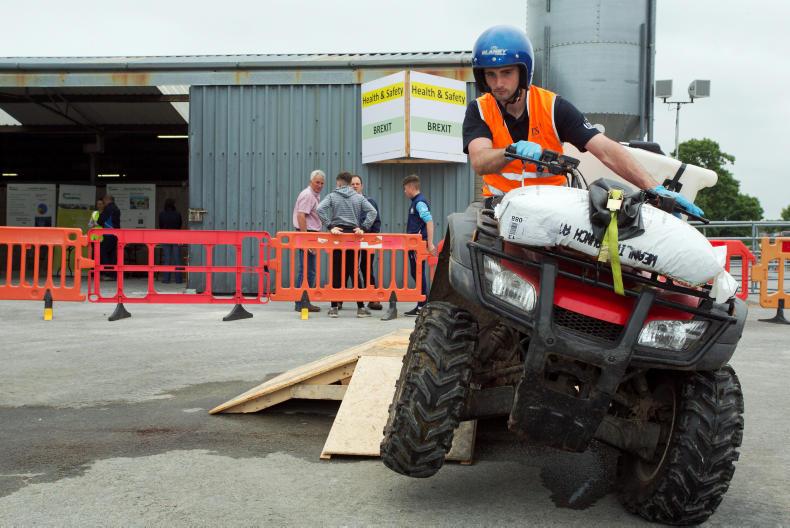
Training demonstrates how to use bodyweight and positioning to stabilise a quad bike.
Even now that the brace has been removed, Johnny still has a long road ahead in terms of recovery with regular physiotherapy to build back up muscle.
Johnny was one of the lucky cases to come out the right side of such an accident and is on the road to full recovery. I took the opportunity to ask him what his advice would be in terms of safety around ATVs/UTVs having experienced such an accident.
“I would strongly push for anybody operating such a vehicle to wear at least a helmet. I would never want anybody to experience what I have.”
Johnny noted that if he had been wearing full body armour, protective boots and a neck brace, he may have escaped with a lot less harm to himself.
Although it may not be possible to wear such a high level of protection while operating farm quads, it is important to note that PPE gear does work and training can teach operators what can go wrong and how to avoid such events.
Even though sports quads prove more dangerous than farm quads, both can cause serious harm if not operated with care.
Remember:
Undertake formal training.Wear a helmet and personal protective equipment.Know the terrain you’re travelling across.Keep the quad maintained and in good condition.Don’t overload racks.Check tyre pressure.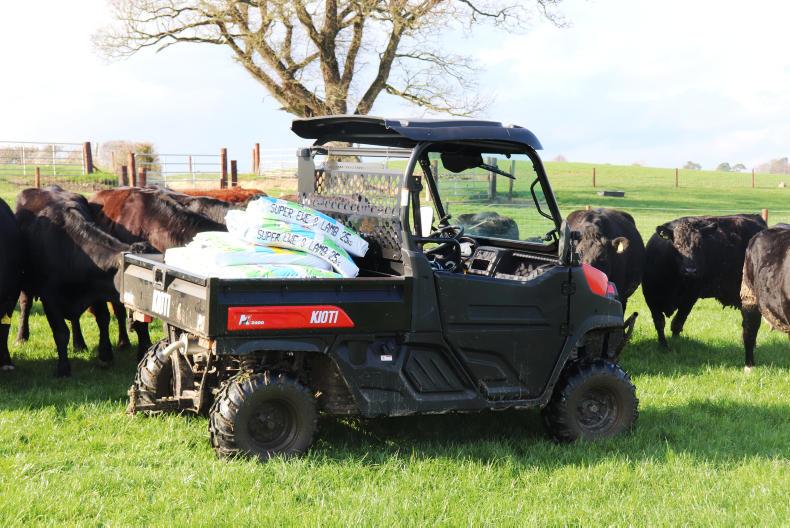
Weights placed on the rear decks should not exceed manufacturers specification
Between 2008 and 2017, 64 farmers lost their lives in machinery-related accidents. According to the HSA, 12 of these accidents involved ATVs, meaning 19% of farm accidents involved quads.
Four of these 12 farmers died after becoming trapped underneath their quad, while three were killed in an impact against another object. One farmer was killed in a crash involving another vehicle, while two others were killed as a result of striking the ground. The remaining two suffered crush injuries.
Tips for safety
1 Probably the most obvious of all, always wear a helmet and if possible other suitable personal protective equipment (PPE) should be worn. It is important to ensure the helmet is correctly fastened, otherwise in the event of an accident the helmet may come off the rider’s head upon impact. 2
Machine maintenance is key to safe use of any vehicle, especially an all-terrain vehicle. The quad or UTV must be fit for purpose and inspected regularly. Tyre pressure should also be checked regularly, as an imbalance in pressures, especially on the front, can leave the vehicle hard to handle.3
ATVs are not designed to carry more than one person. Seat length may leave one to think that the idea for this is to carry passengers. Instead, this is for the rider to shift their weight either forward or backwards to balance the bike correctly.4
Carrying loads or implements on the rear deck is often convenient but leaves the vehicle unbalanced and affects braking, leaving the ATV/UTV harder to control. Care should be taken, especially when operating on hills, as excess rear weight could cause the vehicle to flip. Weights of loads placed on these decks should always comply with the manufacturer’s guidelines. Ensure implements such as sprayers containing moving liquid are always secure as the moving liquid can make the vehicle unstable over time.5
Professional safety training is vital and should be undertaken by all UTV/ATV operators. It is a legal requirement that an employer (farmer) provides adequate training to their employees.6 If implements are being towed behind either a UTV or an ATV, they should comply with manufacturer’s specifications for both weight and size. Capacities for trailers without brakes will naturally be less than trailers with brakes.Safety first
Gary Abbott touched base with Johnny Boggs. Johnny and his brother own Gorthill Farm Contracting, based in Eglinton, Co Derry. Gorthill Farm Contracting is well known in the farm contracting world for its impressive line-up of modern machinery all painted in black.
On 16 August 2018, Johnny was involved in a serious accident involving a quad bike. He was thrown from the bike, landing on the recently cut whole crop field. Johnny was knocked out on impact.
Johnny had broken his C2 bone in his neck, T6 back bone, collar bone and left ankle. Johnny is one of very few people to break their C2 and not be left paralysed for life. He was in a halo brace for the next three months.

Training demonstrates how to use bodyweight and positioning to stabilise a quad bike.
Even now that the brace has been removed, Johnny still has a long road ahead in terms of recovery with regular physiotherapy to build back up muscle.
Johnny was one of the lucky cases to come out the right side of such an accident and is on the road to full recovery. I took the opportunity to ask him what his advice would be in terms of safety around ATVs/UTVs having experienced such an accident.
“I would strongly push for anybody operating such a vehicle to wear at least a helmet. I would never want anybody to experience what I have.”
Johnny noted that if he had been wearing full body armour, protective boots and a neck brace, he may have escaped with a lot less harm to himself.
Although it may not be possible to wear such a high level of protection while operating farm quads, it is important to note that PPE gear does work and training can teach operators what can go wrong and how to avoid such events.
Even though sports quads prove more dangerous than farm quads, both can cause serious harm if not operated with care.
Remember:
Undertake formal training.Wear a helmet and personal protective equipment.Know the terrain you’re travelling across.Keep the quad maintained and in good condition.Don’t overload racks.Check tyre pressure.
Weights placed on the rear decks should not exceed manufacturers specification






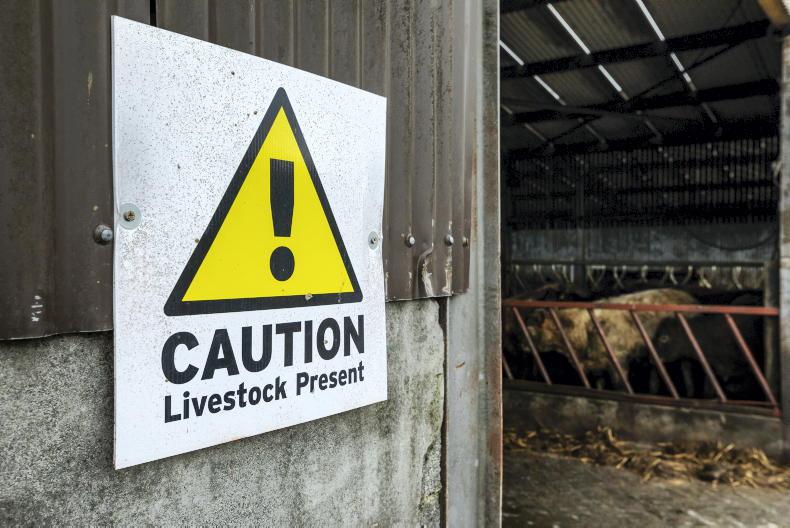
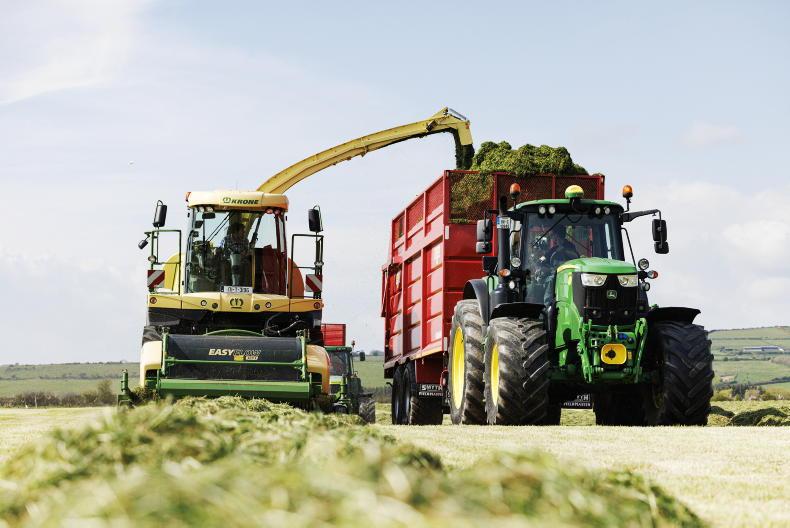
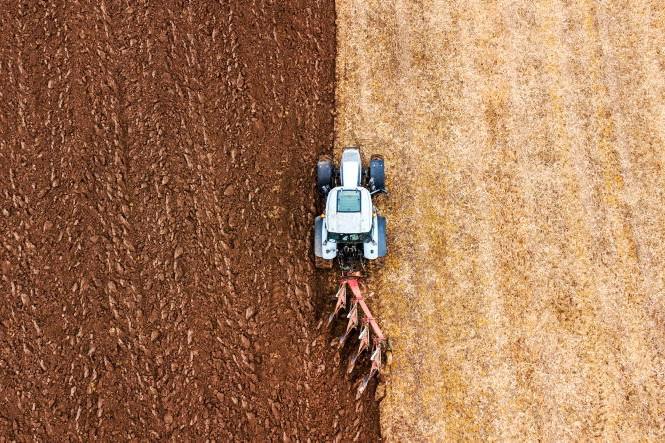
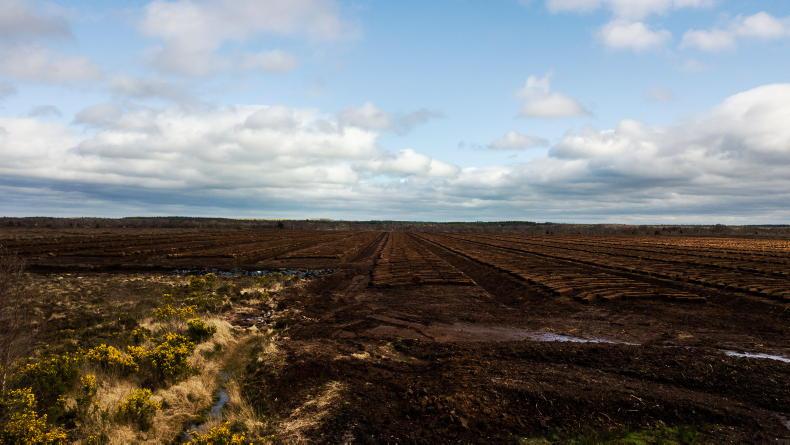
SHARING OPTIONS